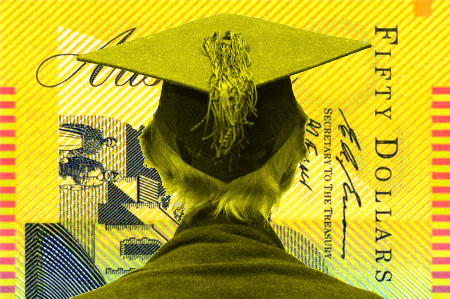Fee change could sink CDU
 Charles Darwin University says it will be “almost impossible” to survive under proposed funding changes.
Charles Darwin University says it will be “almost impossible” to survive under proposed funding changes.
The Federal Government has proposed an increase in student fees from January next year.
Student fees will gradually increase, starting with a 1.8 per cent rise in the first period, until fees have increased by 7.5 per cent in total by 2021.
Additionally, students will have to repay their loans from when they start earning $42,000 a year, down from the old threshold of $55,000.
The package – legislation for which will come up for debate in coming weeks - also includes an efficiency dividend for some grants and makes some government funding contingent on performance measures, student retention and success.
Vice-chancellor of Charles Darwin University Simon Maddocks says the NT university may not survive the funding changes.
“The university is not sustainable in that sort of situation, as a young university we struggle now, we're only just cash positive,” Professor Maddocks told the ABC.
“These sorts of measures would make it almost impossible to see Charles Darwin University surviving into the future.”
Professor Maddocks said it would negatively affect access to education for Indigenous students, the Northern Territory economy and government policies to develop northern Australia.
The university has written to the NT's representatives in Federal Parliament, including NT Senator and Indigenous Affairs Minister Nigel Scullion.
Professor Maddocks has called on Federal Education Minister Simon Birmingham for more information about the changes.
“We've sent him our modelling and we've said in the worst case scenario, this is going to happen, we would like the opportunity to discuss,” he said.
Senator Birmingham called the university’s claims “alarmist”.
“Analysis shows that doomsday statements are simply empty rhetoric because efficiencies clearly exist,” he said.
“The facts are that real per student funding will still be higher than previous years when all or nearly every university was running a surplus, even with significantly fewer students.”
A Senate inquiry into the higher education bill is due to report next week.







 Print
Print